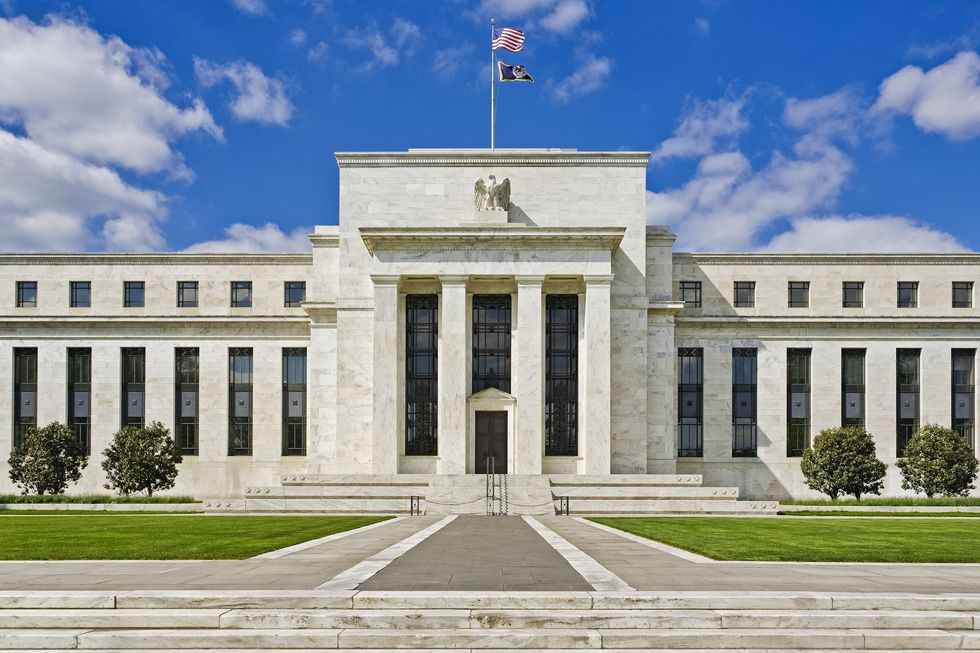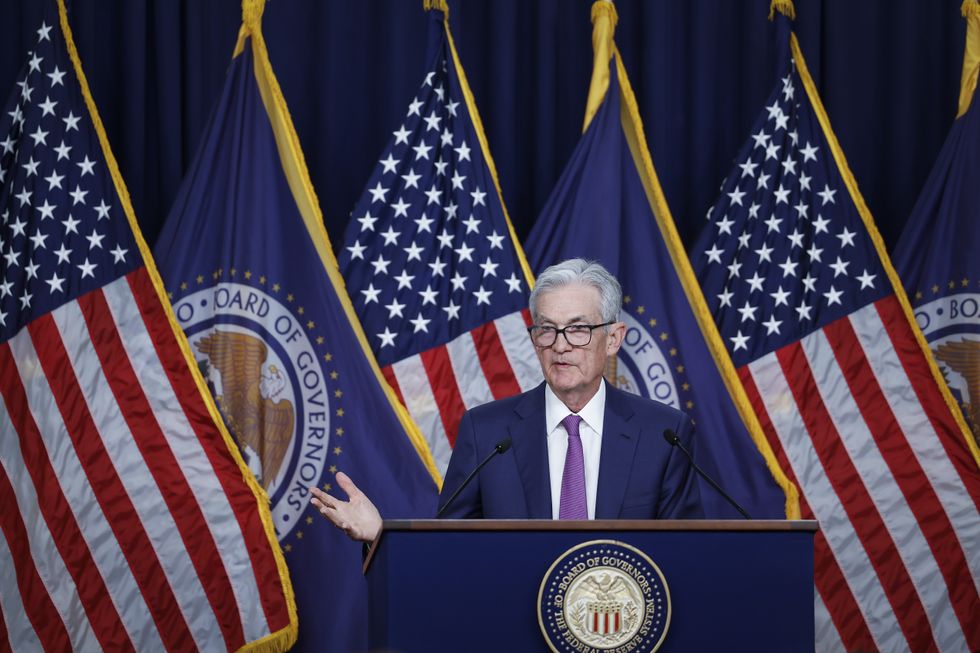Interest rates are not being cut fast enough, according to investors
GETTY
The US central bank's decision to not cut interest rates could provoke a recession, experts claim
Don't Miss
Most Read
Trending on GB News
A US recession warning has been issued after global stocks plummeted amid widespread anxiety that the American economy is at risk of a financial "collapse". These concerns have risen after the Federal Reserve's refusal to cut interest rates earlier this week with many analysts wondering if the central bank has left it too late.
This Thursday, the Dow Jones Industrial Average fell nearly 500 points, as investors’ fears over a recession moved closer to becoming reality. The Dow dipped 494.82 points, or 1.21 per cent, to end at 40,347.97. This comes as unemployment jumped to 4.3 per cent the highest since October 2021.
In July, the US economy only added 114,000 jobs, coming in well under previous expectations. Economists polled by Reuters forecasted 175,000 new jobs. Richard Flynn, Managing Director at Charles Schwab UK, said: "Today’s weak jobs report indicates that demand for labour is losing pace.
"The recent loosening in the jobs market has been a positive indicator for inflation prospects, as too much activity can be a precursor to demand-side pressure on prices. Since inflation figures have come into shooting distance of the Fed’s target, however, the balance of risks has begun to change.
"Today’s figures may stir anxieties that central bankers haven’t moved fast enough to cut rates, nudging the jobs market into a downward spiral. The Fed’s lengthy hiking campaign is so close to achieving its objective for inflation – let’s hope that success on that front doesn’t cause the labour market to tumble."
Despite inflation easing in the United States, the Fed opted to keep the Federal Funds Rate at its 23-year high of between five to 5.25 per cent. This is despite the fact other central banks, including the Bank of England, are taking action to reduce their respective base rates.
Traders have now told The Telegraph that they are surprised at the extend of the fall in stocks. This week, Japan’s Nikkei 225 index closed down 2,216.63 points, representing its second-largest points drop in its history. The plunge came about after weaker than projected factory data from the US revealed output fell to an eight-month low in July.
Do you have a money story you’d like to share? Get in touch by emailing money@gbnews.uk.
 The central bank could slash rates next month GETTY
The central bank could slash rates next month GETTY Initial weekly jobless benefit claims made by Americans jumped to the highest level in 12 months over the period.
Furthermore, the pan-European Stoxx 600 index slumped by 2.15 per cent to a three-month low while Germany’s Dax fell to as much as 1.98 per cent.
The Cac 40 in France dropped sharping to 1.1 per cent with he FTSE 100 dipping by as much as 1.07 per cent.
With markets plummeting sharply overnight and this morning, analysts are sounding the alarm that the Federal Reserve needs to take action as soon as possible.
The Federal Open Market Committee (FOMC) has only three interest rate announcements left to make this year.
Traders are predicting that the committee will need to complete 1.75 percentage points of interest rate cuts this year to prevent a recession taking place.
To compound existing market concerns, Big Tech giants posted poor results this week, including Apple and Amazon.
Despite Federal Reserve chairman Jerome Powell hinting at a future rate cut in September, investors appear to be spooked.
LATEST DEVELOPMENTS:

The Fed Chair Jerome Powell has suggested rate cuts are on their way
GETTYKiyoshi Ishigane, chief fund manager at Mitsubishi UFJ Asset Management, explained: "I didn’t expect stocks to fall this much.
"This is probably because there are concerns that the US economy will collapse in a big way, which is the most unpleasant pattern for Japanese stocks."
José Torres, a senior economist at Interactive Brokers, added: "The short-lived satisfaction of Fed chief Powell communicating decent odds of a September rate cut has turned sour as investors are now panicking that the central bank isn’t trimming soon enough."
The next FOMC meeting is due to take place between September 17 and 18.








